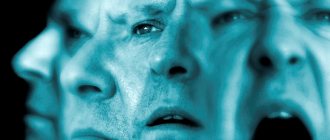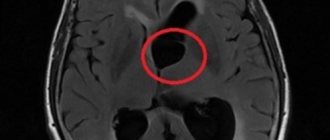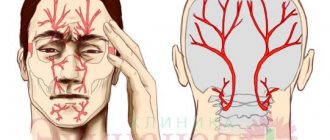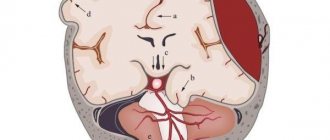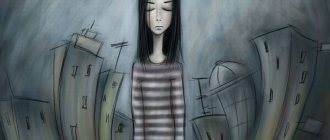GET A FREE CONSULTATION
Etiology of the disease schizophrenia
Despite many studies conducted in this direction, the exact cause of the disease is not completely clear. In psychiatry, it is generally accepted that hereditary predisposition plays a key role.
But the “impetus” for the manifestation of pathology can be:
- stress factors;
- injuries;
- unfavorable psychological atmosphere in the family;
- severe infections (the exact mechanism of development of the pathology is unknown, but it has been established that more often it occurs after a viral illness);
- consumption of alcohol, drugs.
COST OF TREATMENT FOR MENTAL DISEASES
The duration of treatment in a hospital is from 14 to 90 days, depending on the severity of the disease.
TREATMENT IN A HOSPITAL.
AMBULATORY TREATMENT
TREATMENT IN A HOSPITAL
Inpatient treatment – accommodation options
| Accommodation in a triple room | 10,000 rub./day |
| Double room | RUB 13,800/day |
| Single room of increased comfort | 16,000 rub./day |
| Treatment in a single VIP ward | 25,000 rub./day |
AMBULATORY TREATMENT
Ambulatory treatment
| psychiatrist | FOR FREE |
| Consultation with a psychiatrist (first appointment) – free of charge during hospitalization | 3,000 rub. |
| Full psychodiagnostics (all tests and procedures) | from 5,000 rub. |
| Appointment with the head physician of the clinic | 4,500 rub. |
| Consultation with a psychiatrist at home | from 4,000 rub. |
FREE CONSULTATION
If one of the parents suffers from schizophrenia, the child cannot avoid a similar fate
It is believed that parents with schizophrenia give birth to a mentally ill child. This statement is fundamentally incorrect. Heredity cannot be ruled out, but it is not the disease that is transmitted, but the tendency to it. Therefore, it is wrong to give up on a child whose mother and father or one of them suffers from schizophrenia.
The theoretical probability of inheriting the disease is estimated at 67-88%. But in reality the numbers are not so scary:
- in identical twins (even those with a genetic predisposition) - 45-47%;
- Mom or dad is sick - 14%, both - 45%;
- the diagnosis was made to close relatives – about 5%.
Various types of research continue to establish the degree of inheritance of schizophrenia. But so far the results are mixed and preliminary. Scientists already know specific genes that can trigger the development of the disease. This is revealed by reading genetic information and carefully studying it.
More precise data were obtained by trying to link this disease to changes in the gene component of several candidates. Thus, the majority of schizophrenics have a polyform type of serotonin, dopamine and COMT genes. But their presence can also be associated with other mental disorders. So, even if there is a complete breakdown of the genotype, it is impossible to give an accurate forecast of whether a person will develop schizophrenia or not.
Treatment programs
Treatment of depression
Panic attacks
Treatment of schizophrenia
Neuroses, phobias
Symptoms and signs of schizophrenia
A distinctive feature of the disease is a violation of the way of thinking while maintaining almost all functions of the intellect.
The thoughts of a sick person are devoid of specificity, divorced from reality, and are subordinate to internal, often affective, experiences.
The logical associative connection is lost, which explains the incomprehensibility and originality of the patients’ thinking.
Memory impairment, difficulties in concentrating, learning new experiences and knowledge are typical. With the exception of episodes of exacerbation, orientation in the environment and ideas about personality are usually preserved. But sometimes these aspects can be distorted under the influence of internal delusional experiences. Characteristic is a peculiar symbolism of thinking, when real events and circumstances are replaced by symbols understandable only to the patient, while something abstract is realized in concrete forms through certain actions and statements. For example, a person may undress, explaining this as liberation from stupid stereotypes, etc. Sometimes people are convinced that their actions and thoughts are “forced”, that they are “controlled” with the help of some devices, signals, etc.
Behaviors in schizophrenia include:
- demonstrative mannerism of poses and movements;
- at times - pronounced excitement;
- stereotypical gestures;
- periods of stupor;
- very rare or, conversely, frequent blinking of the eyelids;
- imitation of words, movements and gestures of others;
- clumsiness and rigidity of movements;
- sloppiness;
- poverty of emotions with loss of tact, shame, sympathy;
- perversion of instincts (excessive sexual activity, too much appetite, etc.).
During an exacerbation, hallucinations, often verbal, are characteristic. They are usually loud, intelligible, perceived as originating from the outside or sounding internally. Illusory statements include accusations, threats, and insults. Visual hallucinations are noted much less frequently, and tactile, olfactory and gustatory hallucinations arise only as an element of delusional psychosis. A person may also complain of a feeling of heat, a burning sensation in the body, convince that light rays are piercing him, etc.
Types of schizophrenia
Depending on the characteristics of the course, the following forms of pathology are distinguished:
- Malignant continuous acute schizophrenia. It is characterized by an early onset (in adolescence) and rapid development.
- Circulatory form of the disease (it is also called periodic or recurrent). It occurs with alternating depressive or manic phases with delusional and hallucinatory disorders.
- Progressive variant (previously it was called “fur coat-shaped”). Combines the signs of both continuous and circulatory variants of the development of pathology.
Based on clinical manifestations, the following types of disease are distinguished:
- Paranoid. The patient is tense, suspicious, restrained, often aggressive and hostile.
- Hebephrenic. Behavior is primitive and disorganized. Thinking disorders are pronounced, which makes contact with reality difficult. It usually begins at an early age with behavioral disorders and decreased cognitive abilities. The patient is self-absorbed and demonstratively grimaces like a child.
- Catatonic. Frequent changes in state of excitement and stupor are typical.
- Undifferentiated, in which manifestations of all schizophrenia syndromes occur, and it is difficult to isolate them into a specific variant of the course of the disease.
Stages of the disease
- Pre-morbid period . Typically, in the first stages of development, patients are practically no different from healthy people. You can only pay attention to the difficulties with studying in high school, isolation. But such symptoms are so nonspecific that it is simply impossible to diagnose schizophrenia at this stage.
- Prodromal stage . Lasts from 2–3 weeks to several months. Episodes of spontaneous anxiety, inadequate affective reactions, and decreased productivity are noted. At the same time, a person sometimes tries to improve his condition by resorting to specific diets or fasting, treatment with folk remedies, and playing sports. Oddities in behavior and signs of neglected appearance appear.
- Manifestation of pathology. It develops acutely, less often it drags on for months. All symptoms worsen to the maximum, requiring hospitalization.
- Post-psychotic depression with a depressed, depressed state.
- Remission. Although it is very difficult to predict the outcome of the disease in each specific case, the treatment methods used in medicine make it possible to achieve control over all stages of schizophrenia.
Does your relative have a mental disorder?
Refuses hospitalization? Are you afraid that he will harm himself and others? Call or request a free consultation.
URGENT CONSULTATION
The doctor will arrive within 1 hour . We'll take you to the hospital ourselves. Emergency hospitalization - around the clock!
What to do for schizophrenia: basic treatment methods
Despite the fact that the use of modern antipsychotic drugs allows in most cases to stop the main manifestations of schizophrenia, the main role in treatment is given to hospitalization.
Features of inpatient treatment
Only in the conditions of our medical center are the following possible:
- comprehensive diagnostics;
- selection of drugs for long-term use;
- comprehensive rehabilitation, including correction of everyday behavior, communication, family relationships.
At the same time, we made sure that your stay in the inpatient department was convenient and comfortable. Moreover, the price of this treatment option is quite acceptable for almost every resident of the capital.
Principles of drug treatment
There is no universal method for curing a patient. The basis of therapy is antipsychotics; in the absence of contraindications, medications of the latest generation are prescribed. When used, fairly high efficiency is combined with a low risk of adverse reactions. Taking medications begins with a minimum dose, if necessary it is gradually increased (with the exception of a sharp exacerbation - in such cases the dosage is increased immediately). Additionally, a list of medications for auxiliary symptomatic therapy is determined.
Ambulatory treatment
Transfer of a patient to outpatient therapy is possible only after treatment of schizophrenia in a hospital.
Indications for discharge are:
- normalization of behavior;
- disappearance of psychomotor agitation;
- reducing the severity of the main symptoms of the disease;
- restoration of self-criticism, awareness of the existing illness.
After the acute period has stopped, the dose of the antipsychotic is reduced (this happens in the hospital, under the supervision of doctors) and “fixed” at a certain level. At the same time, the doctor outlines a plan for visits to the hospital for additional examinations and to determine the results of taking medications.
Treatment at home
It is allowed only if it is possible to control the regimen of taking prescribed medications and periodically call a doctor at home to assess the patient’s condition. The minimum duration of the course after the first excess is a year. But in most cases, a person has to take pills throughout his life, periodically (up to 2-3 times a year) going to the hospital to prevent or relieve exacerbations.
Only a qualified specialist can determine how to treat schizophrenia. Treatment with a variety of folk remedies is strictly contraindicated; independent selection of antipsychotics is primarily a matter of safety and the future life of the patient. Do not self-medicate, call us on +7 . We will answer all questions regarding treatment, hospitalization and the cost of services; if necessary, the doctor will come to your home at the specified address within Moscow and the Moscow region.
Ensuring relapse prevention
Each new episode of exacerbation of schizophrenia worsens the prognosis of the disease and creates a tendency towards the emergence of stable (resistant) conditions.
Relapse of mental disorder is promoted by:
- non-compliance with therapy
- exacerbation of concomitant somatic diseases
- infectious diseases, psychotraumatic situation
- alcohol or drug abuse
- decrease in the level of social and labor status
- severe side effects of therapy.
It is necessary to carefully analyze the causes of relapse of schizophrenia in order to effectively stop the exacerbation of the disease and predict its further course.
The Brain Therapy Center of the European Clinic "Siena-Med" uses unique methods of treating schizophrenia, approved by official structures, including proprietary programs for the treatment and rehabilitation of very severe and advanced mental disorders. Professionalism, honesty, decency, openness, ligativity, confidentiality are the basic principles of diagnosing the treatment of patients with schizophrenia at the Brain Therapy Center of the European Clinic “Siena-Med”.



